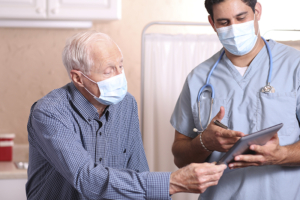 The COVID-19 pandemic put our society on pause, including, among many other activities, appointments and elective medical procedures. In fact, nearly one-half of all adults either canceled or put off routine care and elective medical procedures since the coronavirus crisis began, leading medical professionals to become worried about the consequences.
The COVID-19 pandemic put our society on pause, including, among many other activities, appointments and elective medical procedures. In fact, nearly one-half of all adults either canceled or put off routine care and elective medical procedures since the coronavirus crisis began, leading medical professionals to become worried about the consequences.
Even as we tentatively aim for a new normal, it is essential to talk with your doctor about any procedures you might have been contemplating pre-pandemic, and to get answers to these particular questions that will help you measure the safety of following through with them now.
- Is the medical facility where I will be taken care of also treating COVID-19 patients, and are the same medical faculty who will take care of me also caring for the COVID-19 patients? If that’s the case, what safety measures are in place to guarantee my safety?
- What is the facility’s cleaning/disinfecting protocol?
- Will I need to be tested for COVID-19 before my treatment?
- Are medical personnel being tested for COVID-19? If so, how often?
- Do I have to wear a mask? Gloves? Any other personal protective equipment?
- Are there any items that are prohibited from being brought with me, such as books, clothing, a phone or laptop?
- May I complete paperwork beforehand?
- May I wait outside or in my car until I’m called in for my procedure?
- Can a relative or caregiver come with me?
- Is follow-up provided in person, or am I able to utilize telehealth?
Additionally, there are post-procedure considerations to think through. Many people face concerns with regards to the possibility of contracting COVID-19 after being in the hospital, so talk to your physician about the need to self-monitor for symptoms, along with recommendations on any extra safeguards you might take, such as avoiding contact with other individuals for a period of time, wearing a mask or gloves in the home when others are there, additional sanitizing measures to take, etc. Your health care provider may recommend taking your temperature and oxygen levels at home. In that case, make sure you obtain a thermometer and pulse oximeter.
Once you are satisfied with the answers you’ve received and with the assurance that the procedure is safe to schedule, get in touch with Generations at Home. Our transitional care services will help make sure everything is taken care of before, during, and after your procedure, including transportation, picking up groceries and prescriptions, helping you get settled in back at your home and monitoring for any variations in condition, and so much more. Reach out to us any time at 727-940-3414.







